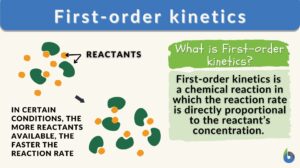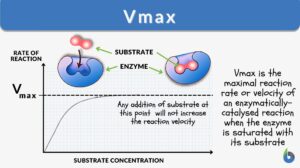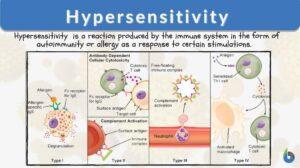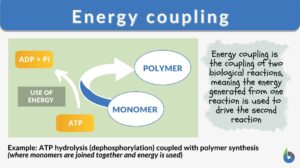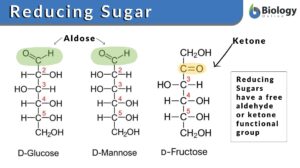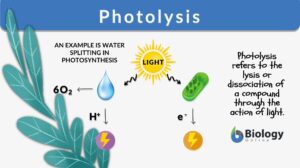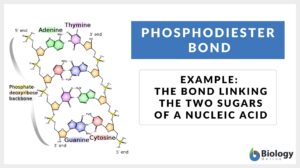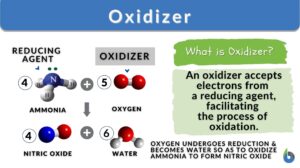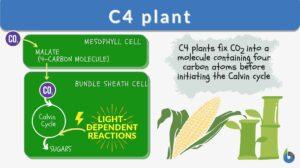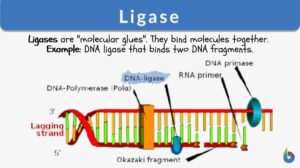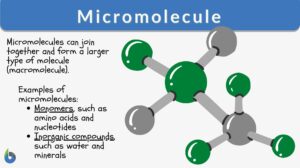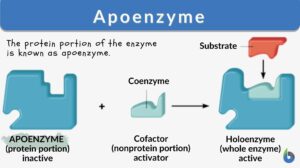Search Results for: bi-bi reaction
First-order kinetics
What is a First-Order Kinetics (First-Order Reaction)? First-order kinetics refers to a reaction wherein the overall rate... Read More
Dehydration reaction
What is dehydration synthesis? A dehydration reaction is a form of biochemical reaction wherein a water molecule is lost or... Read More
Redox reaction
Redox Reaction Definition What are redox reactions? This is a common term in chemistry and biology. In chemistry, a redox... Read More
Light-independent reaction
The process of photosynthesis is a biological procedure in which plants produce oxygen and energy (sugar) by using light... Read More
Bi-bi reaction
Bi-bi reaction a reaction catalyzed by a single enzyme in which two substrates and two products are involved; the ping-pong... Read More
Light-dependent reaction
Many organisms, such as green plants, convert light energy into chemical energy through the mechanism of photosynthesis. In... Read More
Photosynthesis
Photosynthesis is a physio-chemical process carried out by photo-auto-lithotrophs by converting light energy into chemical... Read More
Hypersensitivity
Hypersensitivity Definition Hypersensitivity is the exaggerated immune response to protect the human from foreign bodies... Read More
Protein Activity and Cellular Metabolism
Protein Binding Sites The ability of various molecules and ions to bind to specific sites on the protein surface forms the... Read More
Energy coupling
What is Energy Coupling? Work, whether it be physical or biological, requires energy to be expended. In biological... Read More
Reducing sugar
Reducing Sugar Definition What is reducing sugar? The type of sugar that acts as the reducing agent and can effectively... Read More
Photolysis
Photolysis Definition We define photolysis as a chemical process in which chemical compounds or molecules are split into... Read More
Phosphodiester bond
Phosphodiester Bond Definition Phosphodiester bonds are the backbone of the strands of nucleic acid present in the life... Read More
Cellular respiration
Cellular Respiration Definition What is cellular respiration in simple terms? Cellular respiration can be defined simply as... Read More
Humoral immunity
Let’s get to know where one should place humoral immunity, the topic of today’s discussion!! By the end of the article,... Read More
Plant Metabolism
Introduction Plants are responsible for incredible feats of molecular transformation. The processes are always being... Read More
Glycolysis
What is Glycolysis and Why is it Important? Glycolysis is a metabolic pathway by which the 6-carbon molecule of glucose is... Read More
Phosphorylation
Phosphorylation Definition We can define phosphorylation as a biochemical process in which a phosphate molecule is added to... Read More
Chlorophyll
Why are most plants green? Have you ever had the same question? Perhaps, you’ve been told that the plants are green... Read More
Krebs cycle
Krebs cycle, also known as the citric acid cycle or tricarboxylic acid (TCA) cycle, is a fundamental metabolic pathway that... Read More
photobiology
Photobiology Definition Photobiology, the biology of light, is a subdiscipline in biology. It focuses on the effects of... Read More
Pathobiology of allergy and its most severe form, anaphylaxis
When allergy season looms, some people with serious hypersensitivity to allergens tend to be apprehensive of what may come.... Read More
Kinetic molecular theory
Kinetic molecular theory (Science: chemistry) this theory assumes that molecules must collide in order to react. The more... Read More
Catabolism
Catabolism Definition Catabolism is the branch of the metabolic process that breaks down complex, big molecules into... Read More
Micromolecule
Micromolecules Definition How to define micromolecule? Micromolecules are relatively small molecules that are combined... Read More
Carbon fixation
Carbon Fixation Definition We know that the earth contains many elements. The periodic table shows us just how many... Read More
Reflex arc
Definition noun, plural: reflex arcs A neural pathway that controls reflex reactions Supplement In physiology, a reflex... Read More
Chemiosmosis
Chemiosmosis Definition What is chemiosmosis? In biology, chemiosmosis refers to the process of moving ions (e.g. protons)... Read More
